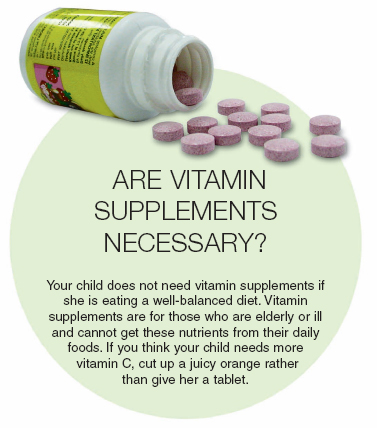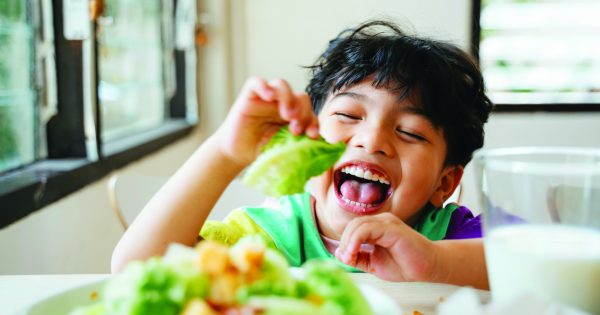If you’re a new parent, you may panic every time your child sneezes or has a temperature. Don’t worry! By the time your second or third child comes along, you’ll be seasoned enough to know that kids fall sick every now and then. After all, it gives them an excuse to stay home from school!
However, if your child is always pale and weak, or gets a sore throat and runny nose every fortnight, this is a sign that her immune system is weak. The body’s immune system is made up of an “army” of cells, such as phagocytes, lymphocytes and antibodies. Just like soldiers need food to keep fighting, these cells also need nutrients to defeat bacteria and viruses.
Proper nutrition provides the “fuel” and “raw materials” to help maintain the immune system. It also protects cells and organs from damage caused by components in your child’s environment, such as pollution. Your child may be eating plenty of food, but if she is not getting the right balance of nutrients, her immune system will be weak.
There are no special foods or nutrients for the immune system. All nutrients – vitamins and minerals, protein, carbohydrates and fat – are important to maintain the immune system. So, your child needs nothing more than a wellbalanced diet to stay healthy. Give her a variety of foods every day, so that she gets a good balance of all the different nutrients. Make sure she eats all the colourful fruits and vegetables, as these are the best sources of vitamins and minerals.
A strong immune system means that all the body’s soldiers are in top fighting form. The next time bacteria, viruses or other germs try to attack your child, they’ll be soundly defeated!
EAT WELL, STAY WELL!
So you want to keep your child healthy with a good diet. Did you know that it begins with what you eat even during pregnancy? Here are some tips to keep your child healthy, from womb to childhood.
During pregnancy
- Eat more foods rich in vitamin C, such as guava, papaya, citrus fruits, starfruit and mango.
- Eat more foods rich in vitamin A, such as liver, milk, eggs, yellow- and red-coloured fruits, and vegetables.
- Eat more foods rich in vitamins B, such as liver, lean meat, fish, poultry, milk, green leafy vegetables, dark-yellow fruits and vegetables, and legumes.
- Eat more foods rich in iron, such as liver, lean meat, poultry, soya bean products, fortified cereals and bread, and green leafy vegetables.
- Eat clean, well-cooked foods. Avoid taking raw fish, undercooked meat, half-boiled eggs, unpasteurised milk and dairy products, and soft matured cheeses (eg Brie).
When breastfeeding
- Breastfeed baby for as long as possible, because breastmilk contains antibodies and other immune system components that protect your baby against infections.
- Breastfeed baby immediately after birth because early breastmilk (called colostrum) is very high in antibodies.
- Eat a well-balanced diet when you are breastfeeding, with emphasis on foods that are rich in nutrients, such as wholegrain foods, meat, legumes, fruits, vegetables, milk and soyabean foods.
- Do not smoke when you are breastfeeding baby; it may cause nausea, vomiting or diarrhoea in baby.
- You can continue breastfeeding even if you have a cold or the flu. The antibodies produced in your body will pass through your milk and protect your baby.
When your child is growing up
- Give your child a well-balanced diet, with emphasis on nutrient-rich foods (as mentioned earlier).
- Don’t put your child on a low-fat diet, unless recommended by a paediatrician or a dietitian.
- Teach your child to choose wholesome nutritious snacks, instead of having “junk food” every day.
- Teach your child not to share eating utensils at school, and to wash her hands before eating.







Comments